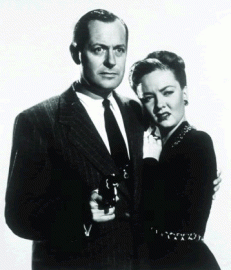
Taking a break from thinking about the future of the eurozone or the prospects for a UN Parliamentary Assembly, I took a trip to 1940s California in the company of Philip Marlowe, Raymond Chandler’s iconic, hardbitten private detective. But amidst the glitz of Hollywood and the grime of Bay City, I found the same worries about public life and public behaviour as inhabit the rest of this website.
Here is police captain Webber, in “The lady in the lake”, explaining to Marlowe after two police officers have assaulted our hero while in the course of looking after a client:
“Police business,” he said almost gently, “is a hell of a problem. It’s a good deal like politics. It asks for the highest type of men, and there’s nothing in it to attract the highest type of men. So we have to work with what we get – and we get things like this.”
Somewhere in a society, there will be power, and power can be misused. In a democracy, we place most of that power in the hands of people we have chosen to hold it, but that power can still be misused. So we need other constraints on the way in which power is used, outside of those imposed by elections.
The future of the eurozone will only be secured if the power of politicians to run up debts is controlled, given that the countries in the eurozone no longer have the power to print money to pay their bills instead. World peace can only be secured if national governments are constrained in their ability to cause environmental or economic harm to other countries, or indeed their own citizens. Captain Webber of the Bay City Police Department does not trust politicians limitlessly, and neither should you.
